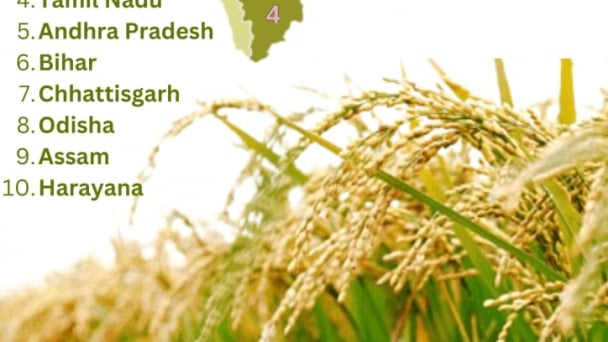June 21, 2025 | 02:46 GMT +7
June 21, 2025 | 02:46 GMT +7
Hotline: 0913.378.918
June 21, 2025 | 02:46 GMT +7
Hotline: 0913.378.918
Opening the phone in the morning, I received a message from a leader of the Vietnam Agriculture Newspaper, asking to share the secret of being able to export so stably, especially to the Chinese market, while both official and unofficial channels are at an impasse. I thought "decision" is of course a must, but "secret" is probably not, because the answers are all basic.
First, to export to a certain country, doing thorough research about its import regulations is out of the question. For the Chinese market, things like growing areas and packaging facilities having to acquire codes or phytosanitary, e.g. pest control for mealybugs and other types, are all within the basic. I list some of them here but will not analyze them further.
Next is the matter concerning quality. This is also basic but it determines all the remaining matters. I have talked to people who work in the field of agriculture at different scales, from normal farmers with only small gardens to rich ones who own several tens of thousands of hectares. They all determined to choose the Chinese market because it is a huge and easy market. This is obviously true.
The question lies in how quality your product is when exporting to those countries. There is an unpleasant reality that remains difficult to correct. I have traveled from Dong Nai and Tay Ninh to Lam Dong and Dak Lak, and even Cambodia, to consult my "colleagues" on how to take care of a bunch of bananas to attain the highest quality compared to world standards (which Unifarm is representing). And the questions I often get are:
- Smallholder farmers: How to find the labor to take such meticulous care?
- Bigger farmers: Chinese customers don't ask for such a high standard, so why do we have to spend money on it? Their purchase price is the same, isn’t it?
- Extreme large-scale farmers: I export to many countries, so each of my growing areas has its own standard, depending on each market demand.
I do not refute the above responses. But at Unifarm, we have only one standard which is the highest standard in the world for the products we choose to grow, whether the market is Vietnam, Japan, Korea, China, or the Middle East. Normally international customers who come to our company to buy goods never require to inspect the quality because we always do it ourselves.
Unifarm usually sells goods to China only when we have a lot in stock. However, with our standards, we are not only selected by the leading agricultural companies in the market but we also have the ability to choose them by going to their production site to see their scales and what their business culture is like. Using Japanese standards to conquer the Chinese market - that is the way for buyers and sellers to have an equal relationship in trading.
Back to the difficulties that Vietnamese farmers are suffering due to China’s tough and unstable import policies and the shortage of containers by shipping lines: Unifarm is also facing the same situation.
Just to cope with such difficulties, Unifarm's customers have worked with us to maintain stability, despite high export costs. They do not abandon us to “swim” by ourselves in this “sea of hardship”. This is without doubt because we need customers and customers need our high standard products.
A lot of people ask me, "How can a business with a scale like Unifarm's build such quality and market standards? What about smaller and less informed farmers?" The answer is that they should associate with farmers who have more information and higher capacity than them.
Together, we must follow a direction that ensures goods production with the best quality while at the same time committing to long-term, stable and sincere cooperation with partners and customers, rather than "surfing" in a way of trying to make profits when the price is high but calling for help when the price is low. Who is going to "play along" with you if you do things like that?
In short, knowing the 'rules of the game' well when participating in the export market and using international standards to conquer the easy market is what Unifarm has been doing. But each person has their own different point of view.
Translated by Trang Nguyen

(VAN) Last week, the U.S. Department of Agriculture (USDA) released its June World Agricultural Supply and Demand Estimates (WASDE), raising projections for both Indian rice production and U.S. rice imports for the 2025/2026 marketing year.
/2025/06/17/2344-1-131758_261.jpg)
(VAN) Amid tariff risks and growing trade barriers in the U.S. market, Australia is emerging as a promising destination to sustain the growth momentum of Vietnam's shrimp exports.
/2025/06/17/2013-1-nongnghiep-112009.jpg)
(VAN) This notable growth trend reflects the global taste for fresh, nutritious fruits and the expanding use of lychees across various sectors.

(VAN) The political and cultural insulation of Japan’s beloved grain is falling apart, and experts warn the country’s relationship with the staple will have to adapt.

(VAN) Noting risks, report examines impacts of avian influenza, changing trade patterns since 2022, fish fraud, and shipping industry’s net-zero goals.

(VAN) Mr. Tran Quang Bao, General Director of the Forestry and Forest Protection Department, met and worked with the International Wood Products Association to promote cooperation in the field of timber trade.

(VAN) China's outbound shipments of rare earths in May jumped 23% on the month to their highest in a year, though Beijing's export curbs on some of the critical minerals halted some overseas sales.